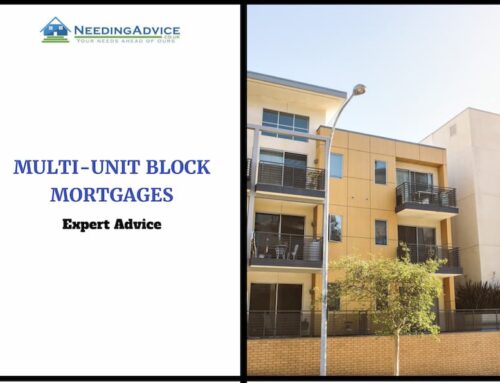What “buying out siblings” means
If you and your siblings inherit a house, you all own it together. Buying out your siblings means you pay them for their share so that you can become the sole owner.
Two common ways to co-own a property are:
- Joint tenants: you each own the whole together, usually in equal shares. When one person dies, the share passes to the others.
- Tenants in common: you each own a set share. Shares can be equal or unequal. Your share passes under your will.
The type of co-ownership affects how you calculate the price for a buy-out and how the legal transfer works. If you are unsure which applies, ask a solicitor to check the title.
The article is updated as of 16 Sept 2025
First steps: probate, title and valuation
- Confirm authority
An executor or administrator needs legal authority to deal with the estate. This is usually through a Grant of Probate or Letters of Administration. - Check the title
Make sure the property is registered at HM Land Registry and that the names and form of ownership are correct. - Get an independent valuation
Ask a local estate agent for comparables or instruct a RICS valuer. A fair market value helps you agree a price with your siblings and avoid disputes.
How to finance the buy-out
You can fund the buy-out in several ways:
- Savings: pay your siblings directly.
- New mortgage: take out a mortgage on the inherited propertyA property inherited by a borrower. to raise the funds.
- RemortgageRefinancing an existing mortgage with a new mortgage. or further advanceAdditional borrowing secured against a property that already...: if there is an existing mortgage and the lender agrees, you may be able to raise extra funds.
- Transfer of equityTransferring ownership of a property from one party to anoth...: where one owner stays on the mortgage and others come off, subject to lender consent.
Lenders usually ask for identification, proof of income, valuation of the property, and details of the legal transfer. A specialist mortgage broker can explain options and lender criteria.
Taxes and common costs
Rates and allowances change. Always check the latest rules on GOV.UK and speak to a professional adviser.
- Inheritance Tax (IHT)
IHT relates to the value of the deceased person’s estate. It is assessed at the time of death. It is separate from your later buy-out. - Stamp DutyA tax paid by the buyer when purchasing a property. Land Tax (SDLT)
SDLT may be due when you pay to acquire your siblings’ share. It is based on the value of the share you buy. File an SDLT return and pay any tax due within the deadline. - Capital Gains Tax (CGT)
If you later sell the property for more than the probate value, you may pay CGT on the gain. If the property is your main home, reliefs may apply. - Fees and other costs
Budget for valuation fees, solicitor and conveyancer fees, Land Registry fees, and lender fees. If there is an existing mortgage, there may be administration fees or early repayment charges.
Legal process: step-by-step checklist
- Discuss the plan with your siblings and agree the intention to buy out.
- Agree a valuation method and obtain an independent market valuation.
- Confirm ownership type (joint tenants or tenants in common) and each person’s share.
- Agree the price and timing for the buy-out, subject to finance.
- Instruct solicitors for both sides to act on the transfer.
- Apply for a mortgage or arrange funds if needed. Obtain lender consent where required.
- Sign legal documents such as a Transfer (for example TR1) and any mortgage deed.
- Submit SDLT return and pay any SDLT that is due.
- Register the transfer at HM Land Registry so the title shows you as the sole owner.
- Update personal plans such as your will and insurance.
Worked example (illustrative only)
- Probate market value of the house: £400,000
- You wish to buy out one sibling who owns 50%
- Price for the share: £200,000 (subject to any adjustments you agree)
- You raise funds by a new mortgage for £200,000
- You pay legal, valuation and registration fees
- You file the SDLT return and pay any tax due on the consideration for the share
- After completionThe point at which a property purchase is finalized and owne..., the Land Registry shows you as the sole owner
This example is for illustrationA document that shows the costs and terms of a mortgage, inc.... Always check current tax rules on GOV.UK and take advice.
If you cannot agree
- Mediation can help settle disagreements about value or terms.
- Expert valuation by a RICS surveyor can provide an independent figure.
- Court options may be available if agreement is not possible, for example an application to force a sale under property law. Seek legal advice before any court action.
Risks and pitfalls to avoid
- Relying on an informal price without a valuation.
- Ignoring the type of co-ownership and each person’s share.
- Proceeding without lender consent where a mortgage exists.
- Missing SDLT filing deadlines.
- Assuming tax rules without checking current guidance.
- Not recording the agreement in clear legal documents.
Latest Updates 2025
These items are verified with reliable sources. Always check UK government website for the latest guidance before you agree a buy-out price or completion date.
| Area | Change | Effective date | What this means for a buy-out | Source |
|---|---|---|---|---|
| Inheritance Tax (IHT): Long-term UK residence | A new residence-based test replaces the domicile approach for non-UK assets after long-term UK residence. | 6 April 2025 | Families with overseas assets may have wider IHT exposure. Confirm the position before finalising a buy-out. | GOV.UK guidance |
| Stamp Duty Land Tax (SDLT) | Nil-rate threshold for standard residential purchases returns to £125,000; first-time buyer relief adjusts with nil rate up to £300,000 (within qualifying limits). | 1 April 2025 | More buy-outs where money changes hands may now attract SDLT on the consideration for the share acquired. | Michelmores explainer |
Can You Buy Someone Out of an Inherited House?(Quiz)
Frequently asked questions
Do I pay Stamp Duty when I buy my sibling’s share?
You may pay SDLT on the value of the share you acquire if you pay consideration. The value is the price for the share, not the full property value. Check the latest rules and file an SDLT return where required.
Can I get a mortgage to fund the buy-out?
Yes. Many lenders consider mortgages for buy-outs of inherited property, subject to their criteria. A broker can help you compare options.
How is the price decided?
The usual starting point is the market value of the whole property, then the percentage share you need to buy. An independent valuation supports a fair outcome.
What happens if one sibling lives in the house?
You can agree temporary arrangements in writing, such as a licence to occupy or a timetable for moving. Your solicitors can draft suitable terms.
How long does the process take?
Timeframes vary. The process depends on probate status, how fast you agree terms, lender timescales and Land Registry processing. Plan for several weeks at least and build in time for valuation and mortgage approvals.
Will I pay Capital Gains Tax when I sell later?
You may pay CGT on the gain above the probate value if the property is not fully covered by private residence relief and allowances. Check current HMRC guidance.
Does the buy-out affect Inheritance Tax?
IHT is assessed on the deceased person’s estate at death. The later buy-out is a separate transaction.
Do I need a solicitor?
A solicitor or licensed conveyancer should handle the transfer, the mortgage documents, the SDLT return, and the Land Registry application. This reduces legal risk.






